Iraqi Kurdistan Expedition 2021
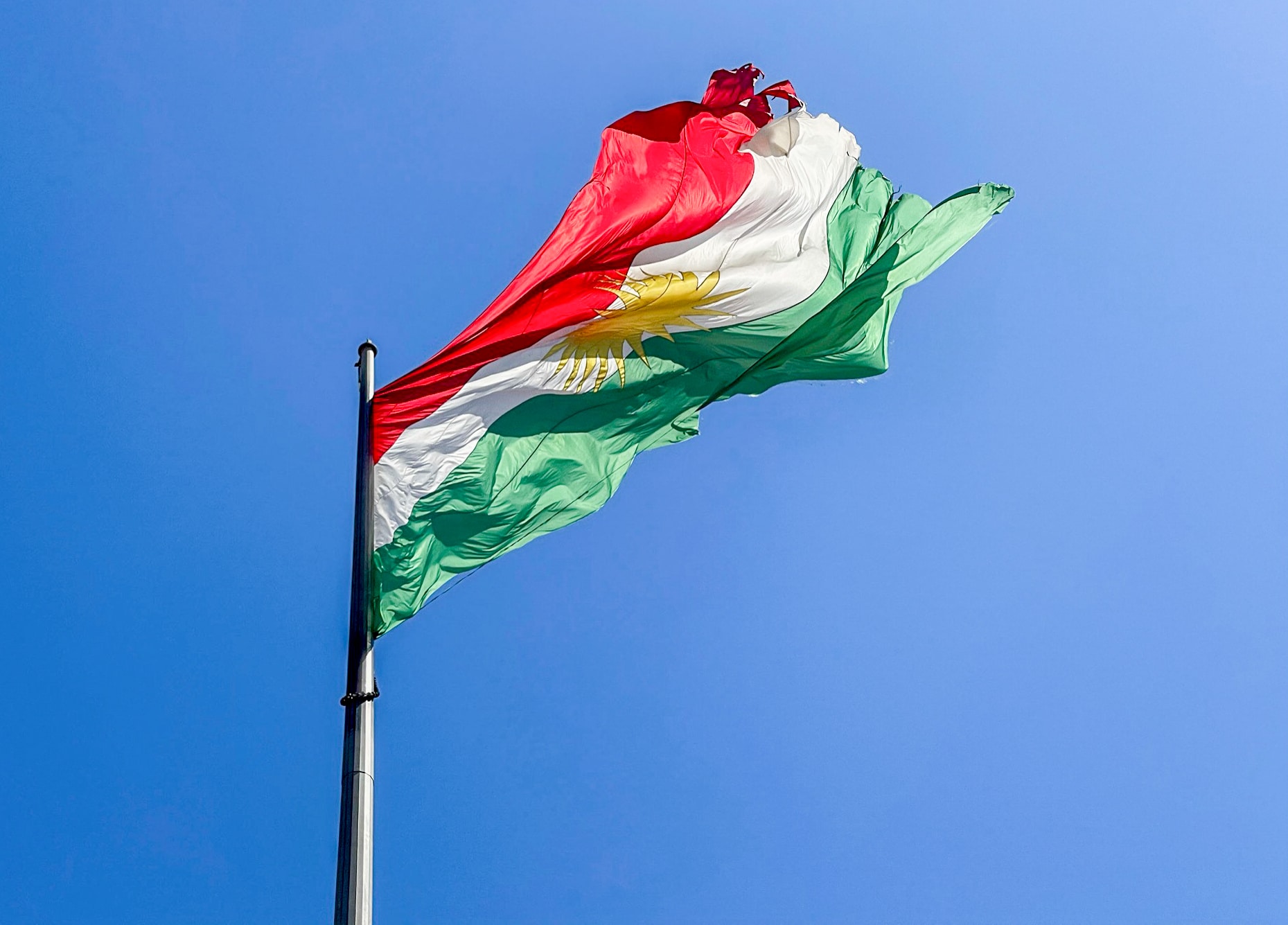
I started following Against the Compass while on lockdown due to the pandemic. My travel plans had been put on hold and reading about Joan’s adventures was the next best thing to being out there myself.
Having always traveled solo, or with family or friends, I was hesitant to book a “group tour”, but I had to believe this “expedition” would be something special. I was not disappointed.
Joan brought together a diverse group of people, coming from very different places, but with the same mindset. Age, nationality, and background didn’t factor in at all; we were all there for the same reason…to absorb everything Iraqi Kurdistan had to offer.
The 8 days I spent with the group never felt like a group tour. It felt like traveling with friends. Our local guides became our extended family and Joan’s experience traveling the region in the past helped chart the best course.
Can Kurdistan be experienced solo?
Of course. It’s an extremely safe destination.
Would I have gotten as much out of it on my own?
Absolutely not.
There are places I wouldn’t have known existed or wouldn’t have gained access to without a local guide. And I would have missed out on meeting an amazing group of people (local and from abroad) whom I now consider friends.
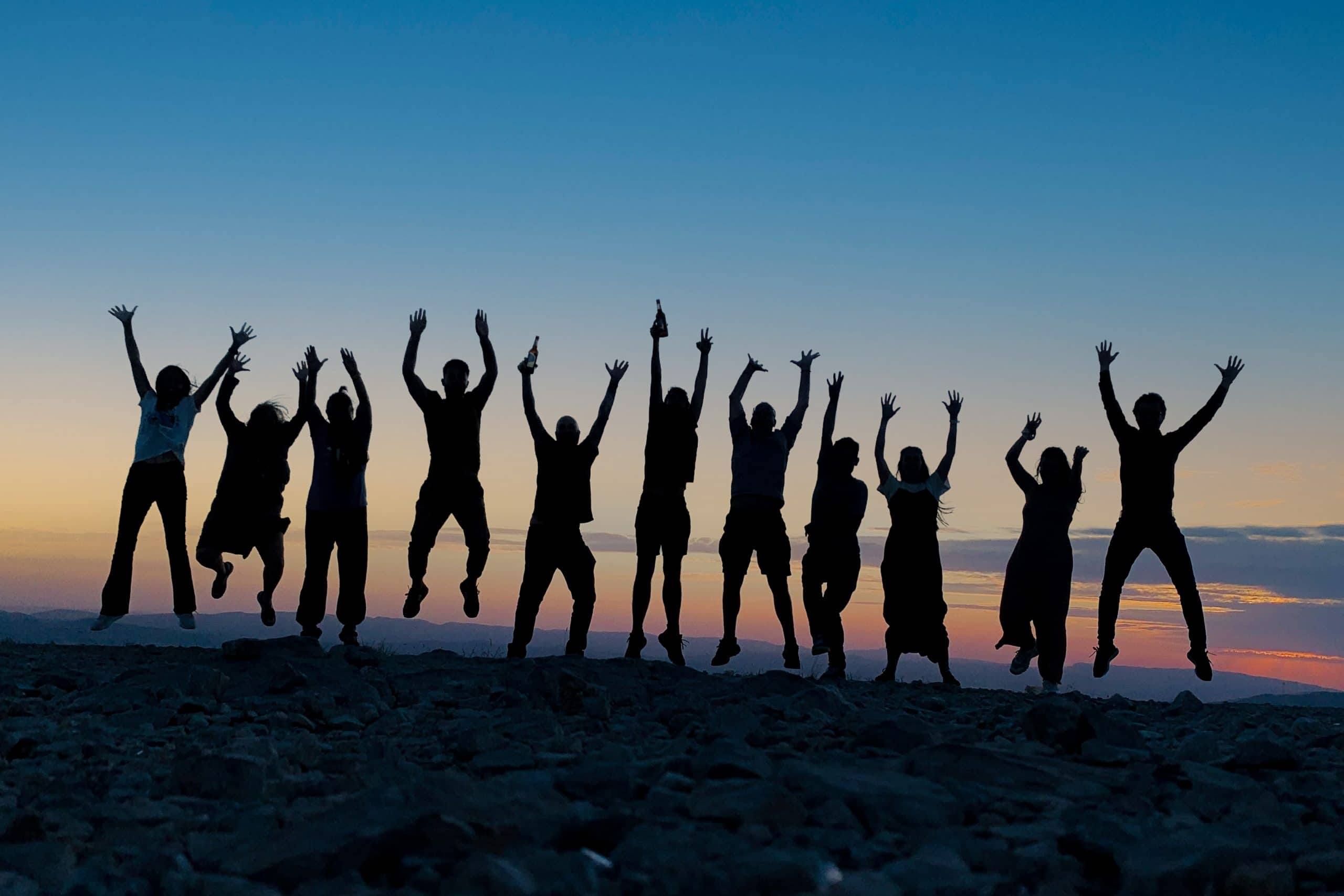
Kurdistan isn’t technically a country, as it’s part of Iraq, but the Kurds are very proud of their ethnicity and culture; they define themselves as Kurds, not Iraqis.
There are Kurds living in Iraq, Syria, Turkey, and Iran, but Iraqi Kurdistan is the closest thing they have to their own land. It was made possible when the U.S. enforced a no-fly zone in northern Iraq after the first Gulf War.
Kurdistan is a very safe place. It is the Iraq the U.S. envisioned for the rest of the country. That’s not to say it doesn’t have its issues with corruption, refugees (an Iranian Kurd immolated himself in front of the embassy a couple days before I arrived), inner strife (between the PUK, PDK, PKK, etc. etc.) and the occasional bombing, but statistically speaking, Erbil is much safer than most European cities. Petty crime is almost non-existent, and we were able to walk around at night and hail cabs without issue.
ISIS never got to Erbil, partly due to the Peshmerga (Kurdish military forces) holding their ground against the Islamic State.
The Kurds are extremely welcoming people, and their capital was a great place to start the Against the Compass Expedition around this small corner of the world.
The frontline between the Peshmerga and ISIS from 2015-2017 was that hill you see in the distance. If ISIS would have advanced, the monastery would not be standing today.
Our local guide used to escort foreigners (mostly journalists) to the frontline, but after coming face-to-face with ISIS fighters, as well as being in Mosul before they cleared the bodies and having a bomb go off dangerously close, he decided his life and family were more important than the risks he was taking.
It is a beautiful, but extremely sad place. The Yazidis were victims of genocide by ISIL in 2014. Thousands of men were killed, and the women were kidnapped and force into sexual slavery.
The effects felt today cannot be understated, one of which is the bastard children, fathered by ISIL fighters, who are not accepted by the families and are forced into state ran orphanages.
The petrol in Kurdistan is shit, so fuel pump failure is a common occurrence.
Luckily for us, our driver was not only our comedy relief throughout the trip, he was also able to swap out a fuel pump in 15 minutes.
Our guide was apologetic for the short pit stop, but anyone who travels knows this comes with the territory and just adds to the experience.
One funny story that came out of this was when we were talking about the price of fuel and I explained how prices went up in the US due to the pipeline hack. I explained how ransomware works and Karwan translated my explanation to his cousin, Muhammed. That’s when they both started laughing and replied “here, they’d just use a bomb.”
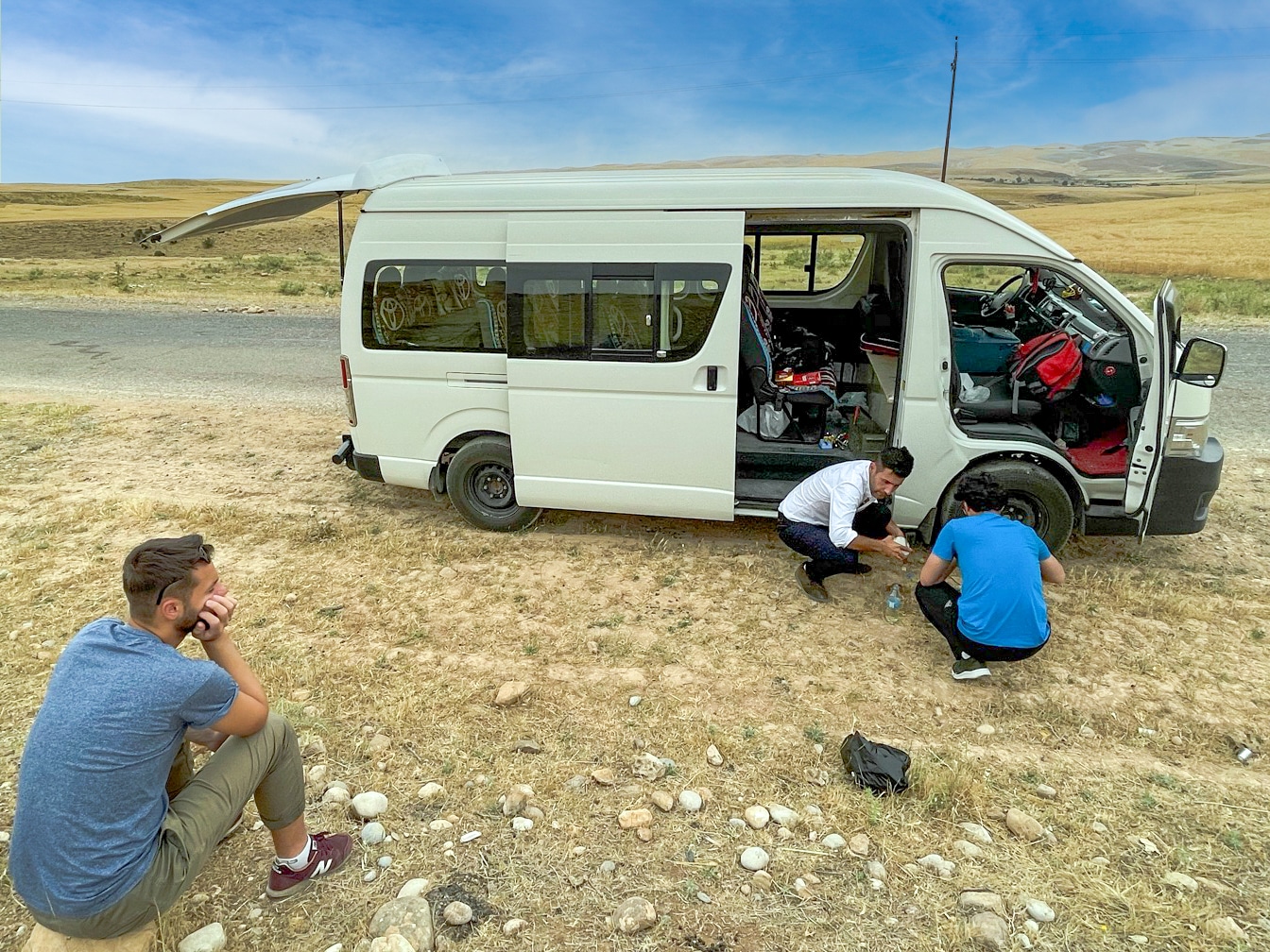
Middle Eastern food is great. Kurdistan’s cuisine was no exception.
But after eating it every single day, I will be happy not to taste another kebab for the foreseeable future.
I do wish I could find the salty, sour yogurt drink here at home though.
Alcohol isn’t illegal in Kurdistan, but it is forbidden by Islam.
That didn’t stop us from hitting the “haram” shops in the Christian districts though.
Farida was a local beer (brewed in Baghdad) that was actually pretty good for a lager.
It wasn’t readily available though, because the Kurds aren’t exactly close with their Arab neighbors to the south.
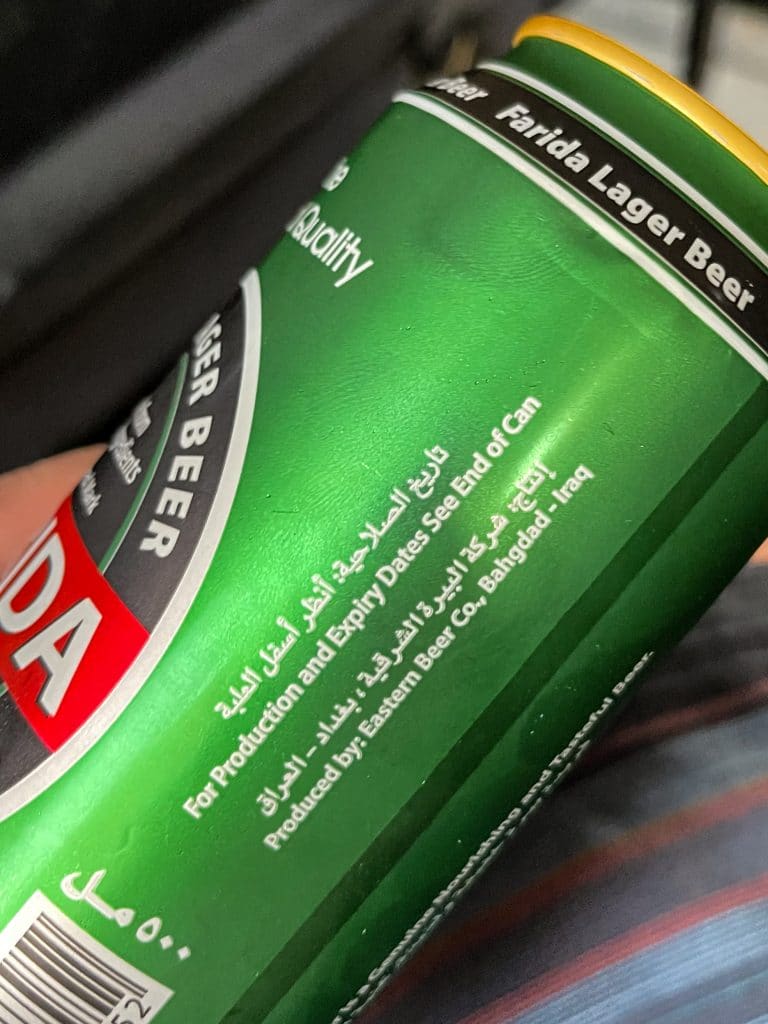
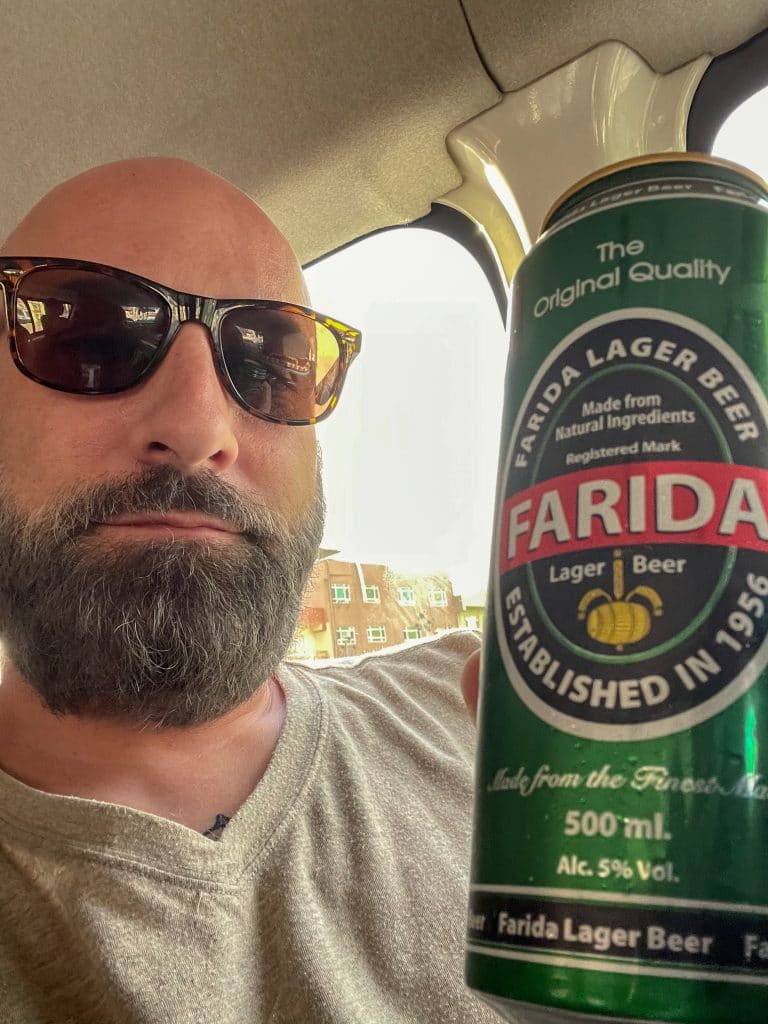
Woke up at 5:45am because I still wasn’t acclimated to local time. Went to a monastery, broke down on the side of the road, experienced the emotional rollercoaster of Lalish, had issues getting into Khanis (ancient ruins from 2500-3000 years ago in the time of the Assyrians), didn’t eat lunch until after 3:00pm, checkpoints, passport checks, etc.
So, when we got to the lookout over the city, where is was so much cooler than anywhere we had been, it was amazing to just sit…sit and look at the view and remind myself I was in Iraq.
Duhok was mostly just a place to grab dinner and spend the night.
An interesting thing happened while we were eating on the street. A young Muslim woman struck up a conversation with Nick while we were eating on the street. She did this in public, in front of her family, and was practically flirting. That’s pretty rare in these type of countries.
It’s over 5,000 years old and sits on the flat top of a hill. It’s just cool looking.
They say it was the home of the the Magi priests know as Three Wise Men in the Bible, but who knows?
I never expected to be swimming in pristine turquoise water either.
Just another example of how you can never really know a country without going there yourself.
This is also where I realized we had been traveling in a Primary School van.
The only thing I remember is the Spanish speaking archeologist. The only reason I remember him is because he stalked one of the girls on in our group through WhatsApp for the rest of the trip.
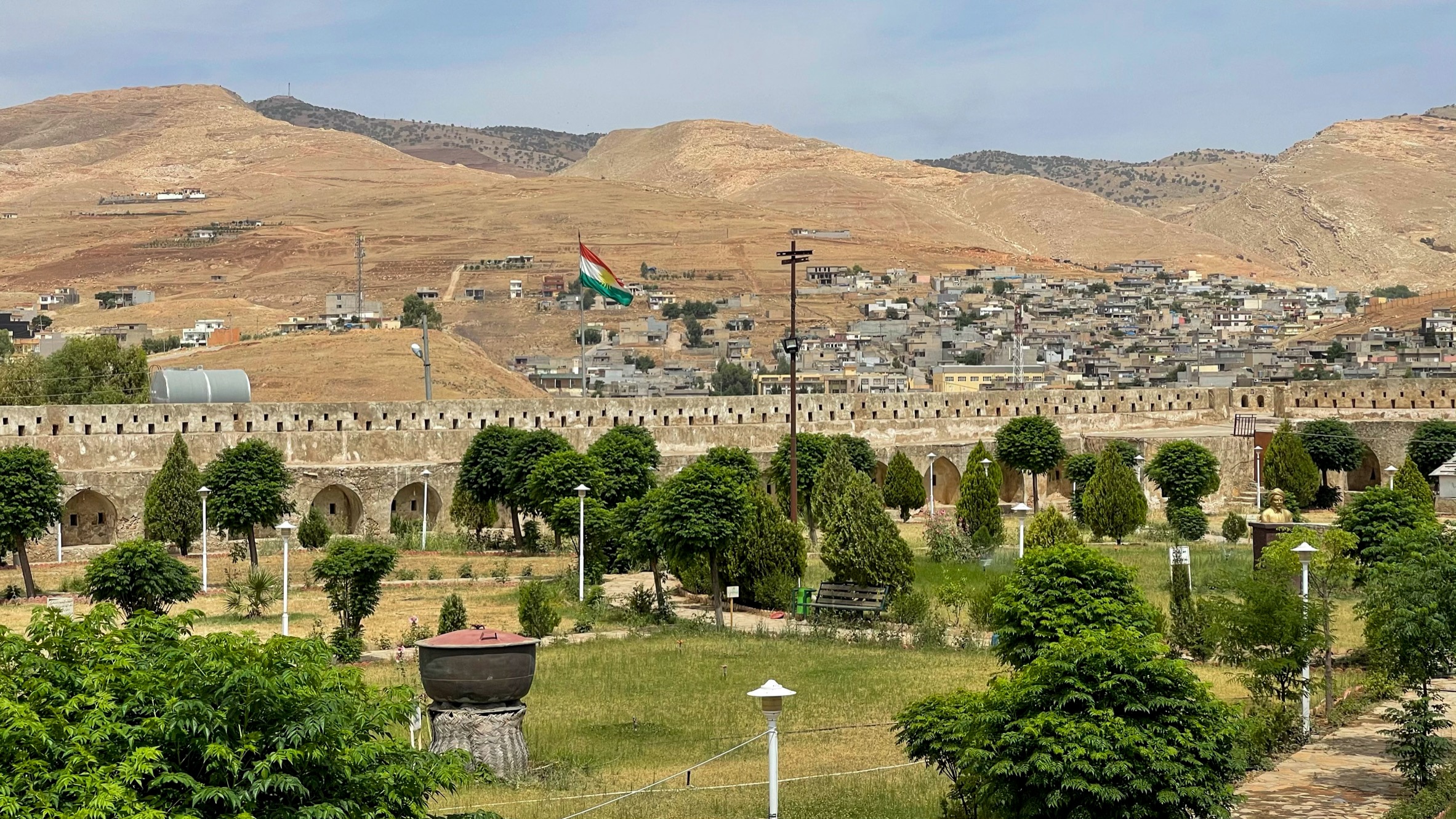
The Red Security Museum was one reminder of the awful things that happened not so long ago.
Most of the museum, housed in a former Baa’th security (torture) facility, is dedicated to the Anfal campaign (genocide) perpetrated against the Kurds by Saddam Hussein. There is also a section dedicated to the brave (crazy) people who clear landmines, and another section showing the atrocities committed by ISIS/ISIL in the uncomfortably recent past.
It was a sobering experience on par with SR-21 in Cambodia and the Nazi concentration camps in Europe.
Sulay felt more modern as well, with high rise buildings and a hotel modeled off Burj Al Arab in Dubai.
The streets were alive at night.
I ran into a Kurd from St. Louis who hadn’t been back to Kurdistan in 8 years. He said St. Louis is much more dangerous these days.
I also attracted a creepy Iranian tourist who would not leave me alone. Really strange guy who kept asking me why I wasn’t wearing a mask, even though he was the only person among thousands on the streets who was.
We drove up to an overlook for sunset and were able to buy beers at a stand on the way up. We had music, great views, alcohol, and it cooled down enough that some of the crew needed “jumpers”. We all agreed it was one of those moments none of us expected to experience in Iraq. It was one of those perfect moments you only get when traveling
The guy is hilarious and took us to a modern mall to sit at a restaurant and smoke shisha.
He drove us back to the hotel that night and gave us a makeshift tour of his city, including highlights like the park that acted as a killing field but then turned into a hookup spot, and the mosque with a brothel right next door.
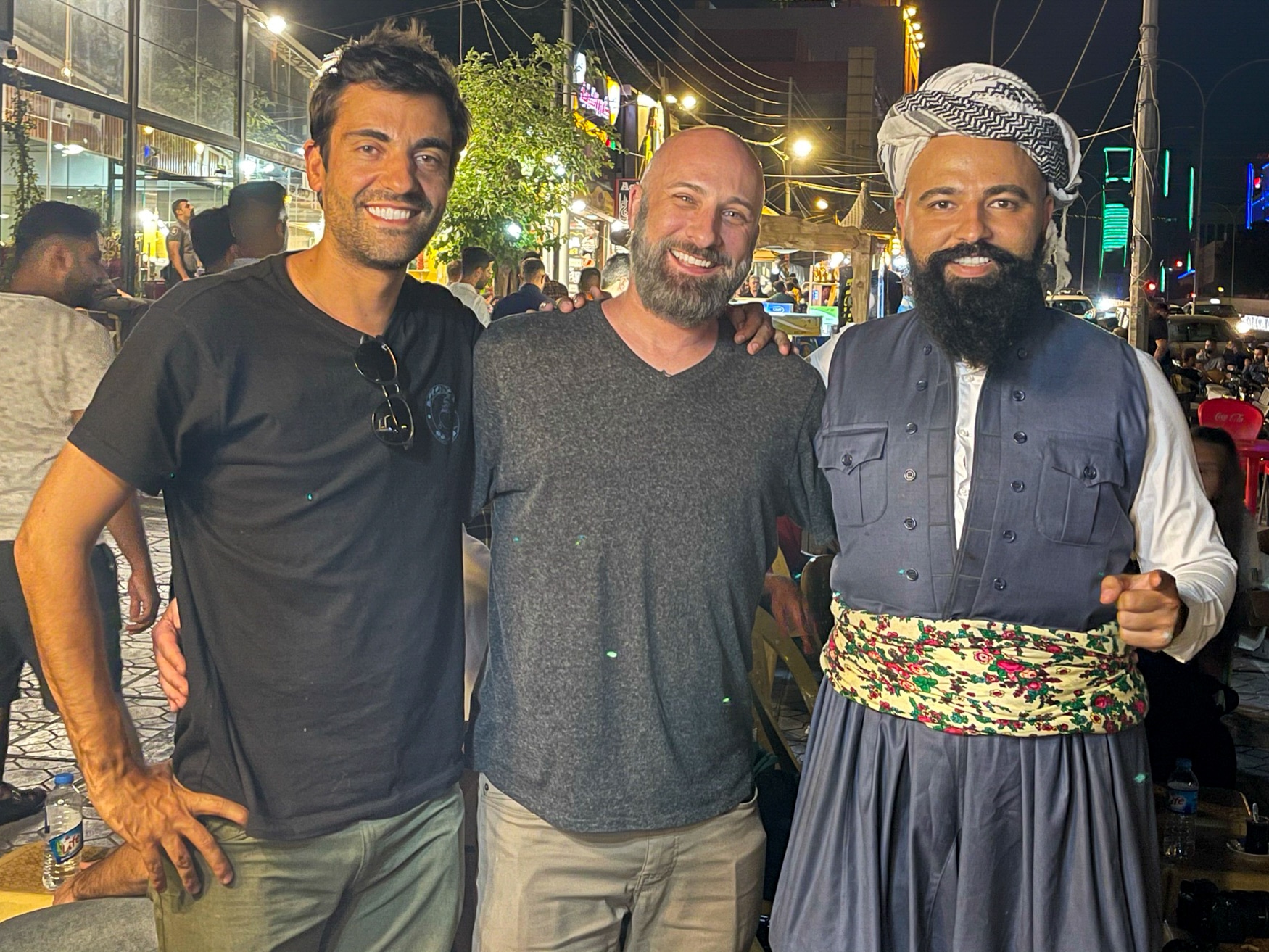
Around 5,000 people died within minutes of the canisters hitting the ground; canisters of chemicals dropped from planes; chemicals that smelled like apples when released.
We arrived at the memorial on a special day. I think it was referred to as Global Day.
One thing that hasn’t been publicized as much as the deaths is the missing children. There was so much chaos after the attack, with people running to the hills to escape the poison, that people were lost. Some were taken to Iran, some to Saudi Arabia, never to be heard from again. A lot of these people were children. I am not 100% clear on why they were not returned, but there were women speaking about lost loved ones while we were there.
We also met a survivor who was 18 when the attack happened. He told us about trying to save people and how their limbs would fall off when being dragged. And about people who drank water from the river, which was poison by that point. He just kept talking about sadness.
This was another sobering experience.
The Peshmerga solider at the checkpoint entering Tawella was very clear with us. “You are welcome here, but I cannot protect you on the other side. The Iranians may be nice people, they may be nicer than us, but I can only guarantee your safety on this side.”
Tawella is where you can supposedly stand in two countries at once. One foot in Iraq and one in Iran. It’s bullshit though. Google maps shows you’d need to hike a good mile or so from that spot to be in Iran.
My guess is those hikers knew what they were doing and just didn’t expect to get caught. As for me, I wasn’t taking any chances…even though the joke in our group was that we were there to drop me (“the American”) off for a hike.
The calm before the storm cut short our visit to the lake
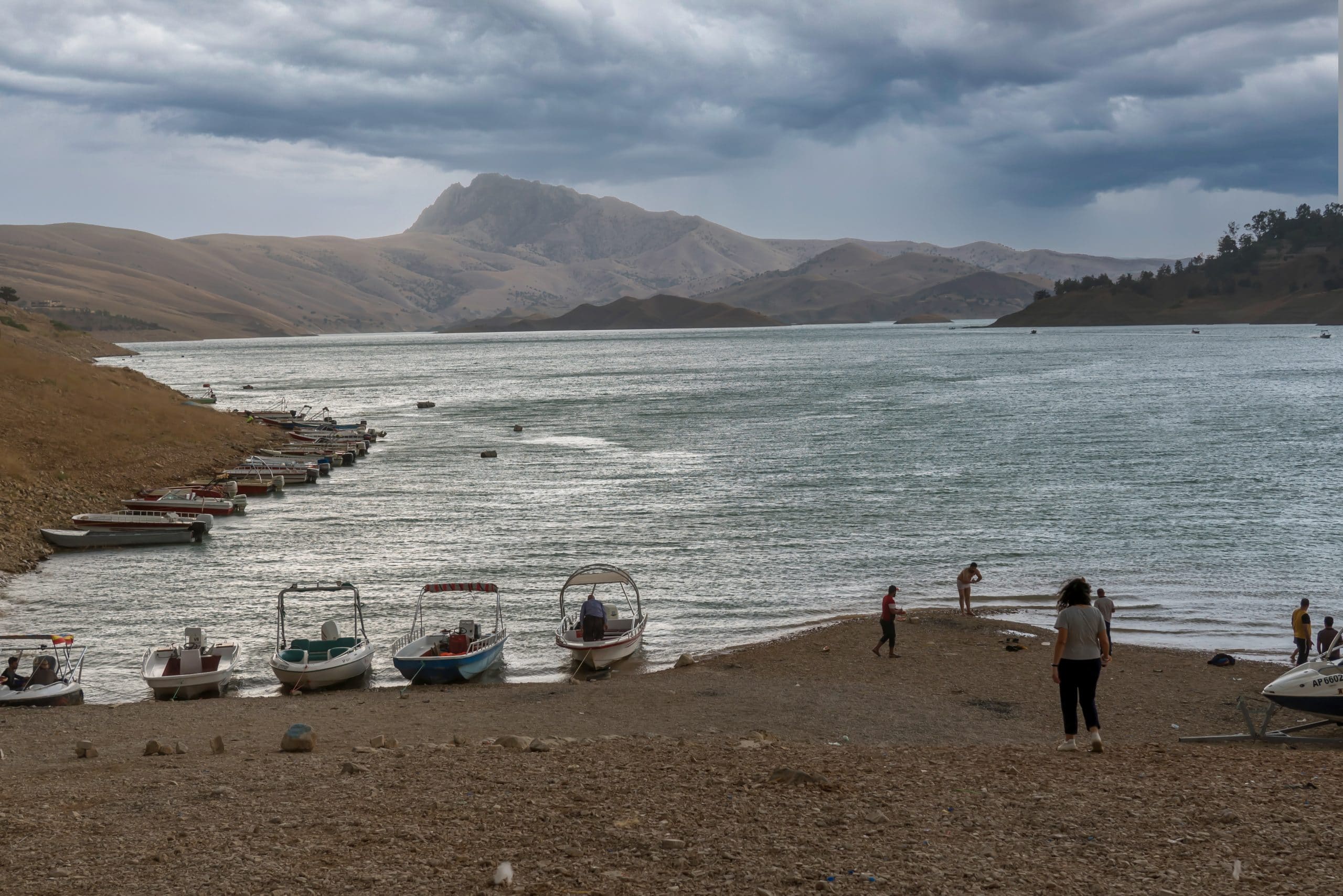
“Food may not be the answer to world peace, but it’s a start.”
Anthony Bourdain always said food was the great equalizer. That couldn’t have been more true than when Karwan invited us to his home for a meal prepared by his wife.
Cultural, religious, and ethic differences didn’t matter. Watching him interact with his wife and kids, I realized that although we come from different worlds, we all just want what is best for our families. I also noticed his kids watch the same Netflix shows as my girls; just one example of how we have more in common than we might think.
While we were sitting around after the meal, drinking tea, the conversation of multiple wives came up. Karwan only has one wife, but his grandfather has two. This might be shocking to someone from western cultures but believe me when I say some of our practices are shocking to them.
This meal in this home was a highlight of the trip.
Travel is not always fun. Sometimes it is miserable. I experienced a little of that on this trip.
While the rest of the group was in the mountains making independent films with the handsomest actor/model/barber is Kurdistan, I was in a dark hotel room in Erbil worried I was one of those rare people who got infected with COVID, a second time, after being fully vaccinated. The things going through my mind while my head pounded, and my stomach rumbled, were enough to make me insane.
Luckily it was just a 24-hour thing. I missed the mountains, but Karwan’s dad picked me up the next day for a COVID test and dropped me off to catch a shared taxi to Akre to intercept the crew on their way back.
That car dropped me off on the outskirts of town, where I caught another ride into the city center. It felt good to be out on my own, and to meet up with the group, but I couldn’t eat lunch, or anything else, for another couple days.
This all comes with the territory though…and in reality, I got off easy. Being quarantined in Kurdistan would not have been a good thing, especially because I had a flight to Kabul in a couple days.
Maybe it wouldn’t have worked if we were in a destination full of tourist attractions (where some people want to hang out in museums while others wanted to be active or drink, etc.) but we were all on the same page in Kurdistan.
I think I can speak for everyone when I say we all had a great time.
